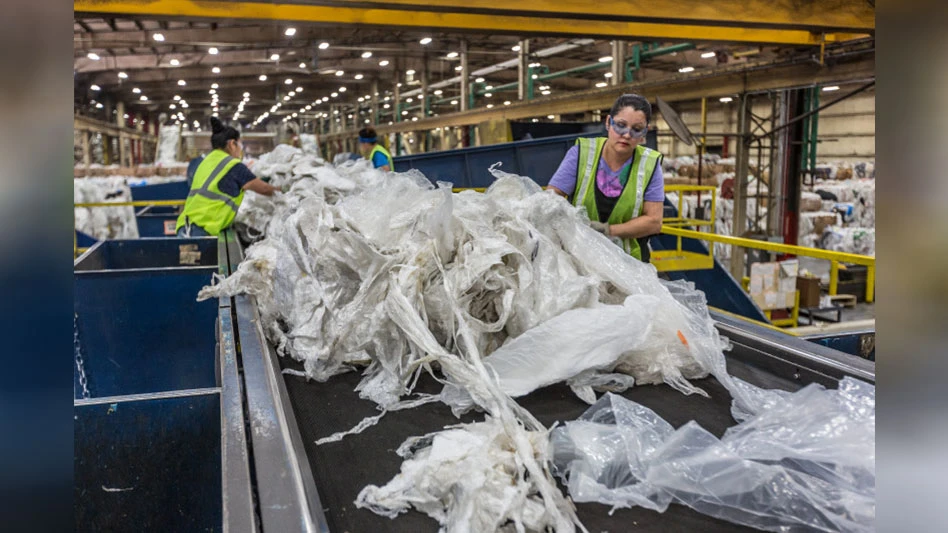
Twenty-four finalists from 13 countries have been selected by a panel of judges to move forward in the Ocean Plastic Innovation Challenge, a global search for innovative solutions to help tackle the world’s single-use plastic problem, according to a blog post by National Geographic, Washington.
National Geographic and Sky Ocean Ventures launched the challenge February 2019, which focuses on three strategic ways to address the growing issue of plastic pollution: identifying opportunities for industries to address plastic scrap throughout supply chains, communicating the breadth of the issue through data visualization and designing alternatives to single-use plastics.
A pool of 291 teams submitted solutions for the challenge. In the second phase of the challenge, finalists will work to improve their solutions and prepare more robust submission packets for the judges. Each finalist team will be assigned an expert advisor to provide guidance and feedback on their submission.
The 10 finalists from the Circular Economy track are the following: Algramo, Chile; Hepi Circle, Indonesia; Infinity Goods, United States; Kabadiwalla Connect, India; Kecipir, Indonesia; Keko Box, U.S.; Muuse, Signapore; Returnity, U.S.; The Bulk Delivery Truck, U.S.; and Vessel, U.S.
"The explosive growth of e-commerce has led to an avalanche of single-use shipping packaging that is difficult or impossible to recycle," says Mike Newman, CEO of Brooklyn, New York-based Returnity, which produces customized reusable, recyclable shipping and delivery packaging guaranteed for 40 uses that replace cardboard boxes and plastic mailing bags. "We are honored to be recognized by National Geographic and Sky Ocean Rescue for the work we are doing with leading e-commerce and shipping companies to address the financial and environmental impacts of this waste and introduce solutions that will set in motion the shift to the new circular economy."
The four finalists from the Data Visualization track are the following: Cataracta, U.S.; LSU Remote Plastic Assessment Group, U.S.; #PerpetualPlastic, Germany; and “So, how long will it take?,” a collaboration from Israel and the U.S.
The 10 finalists from the Design track are the following: Astu Eco Container Box, India; Chemolex Ltd., Kenya; EarthSuds, Canada; EcoFLEXY, Denmark; Precious Planet, United Kingdom; Qwarzo, France; Ranpak’s new WrapPak Protector, Netherlands; Reboo, Denmark; Savor, U.S.; and Turning Threats into Opportunities (TTO), Kenya.
Winners will be announced December 2019 after the teams pitch their solution in person to the judges at National Geographic headquarters. The finalists and winners from each track will be entitled to a share of the $500,000 prize with select finalists entitled to a portion of $1 million in investments from Sky Ocean Ventures.
The Ocean Plastic Innovation Challenge is a key component of National Geographic’s “Planet or Plastic?” initiative, a global effort to significantly reduce the amount of single-use plastic that reaches the ocean by raising awareness, elevating science and education, advancing innovation and inspiring action.
McDonald’s UK: Paper straws can’t be recycled
McDonald’s has reportedly said that its new paper straws, which rolled out in restaurants in the U.K. and Ireland last year, can’t be recycled.
"While the materials are recyclable, their current thickness makes it difficult for them to be processed by our waste solution providers, who also help us recycle our paper cups," a McDonald's spokesman told the UK's Press Association news agency.
The issue was first reported by U.K.-based newspaper The Sun, which published an internal memo that said the company’s paper straws are "not yet recyclable and should be disposed of in general waste until further notice,” CNN reports.
The move to replace plastic straws, which were recyclable but also caused problems for processors, with paper straws supported McDonald’s goal to source 100 percent of packaging from renewable or certified sources and have packaging recycling in all restaurants globally by 2025.
“McDonald’s is committed to using our scale for good and working to find sustainable solutions for plastic straws globally,” Francesca DeBiase, executive vice president, global supply chain and sustainability, said in a press release at the time. “In addition to the exciting news from the UK today, we are testing straw alternatives in other countries to provide the best experience for our customers. We hope this work will support industry wide change and bring sustainable solutions to scale.”
The issue represents a larger challenge to find solutions to the global single-use plastic problem. The European parliament has voted to ban single-use plastic cutlery, among other plastic items, by 2021. The ban will be implemented in England by April 2020 and will come into force in all EU member states by 2021.
India rolls out 'garbage cafe'
India has launched its first “garbage cafe” in Ambikapur, according to a report by Vice. The cafe will serve homeless and poor a free meal in exchange for every kilogram of recyclables that is collected or a “substantial breakfast” for 500 grams of recyclables. The initiative aims to incentivize waste and recycling collection.
Plastic, including plastic bags, collected at the cafe will be used to build roads in Ambikapur, Vice reports. The roads are reportedly more flood resistant. The city hopes to expand the initiative to provide free shelter for homeless in exchange for recyclables.
Latest from Recycling Today
- Tariff on copper could be looming
- Lefort Trax 1375 model on the job in Indiana
- Sennebogen demolition unit gets new leaders
- TerraSafe launches plastic-free products following merger with DisSolves
- University of Richmond wins first place in Campus Race to Zero Waste
- Sonoco achieves Pet Sustainability Coalition accreditation
- Eneos, Mitsubishi Chemical complete chemical recycling facility
- Clean Vision breaks ground on West Virginia pyrolysis facility






